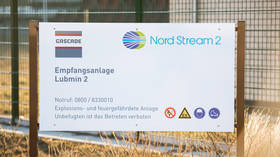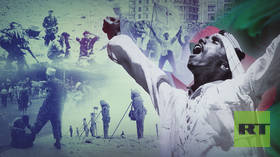Alain Delon: A True European

Karl Richter reflects on the life and legacy of Alain Delon, highlighting his commitment to conservative values, his disdain for modern society, and his status as both a cinematic icon and a defender of the old Europe.
The European film industry has lost a great star. On Sunday, Alain Delon passed away at the age of 88. He was one of the most prominent figures in post-war European cinema in the 1950s and 1960s, captivating audiences as an adventurer, rogue, and lover not only on screen but also in his private life, which was rich in scandals, breakups, and affairs.
Less known is the fact that Delon never made a secret of his sympathies for the political right, unlike most of his colleagues, who, for decades, have predominantly been left-leaning, even in France. Brigitte Bardot, who repeatedly expressed her solidarity with the former National Front under Jean-Marie Le Pen, and Yves Montand are the notable exceptions.
By the 1970s and 1980s, Delon supported conservative figures in French politics, such as Valéry Giscard d’Estaing and Raymond Barre. He continued to stand by his convictions until his later years. As recently as 2014, he voiced his criticism of same-sex marriage and adoption rights for gay couples in the context of the European elections, stating, “because a child needs a father and a mother and must be raised by a father and a mother.” In today’s Europe of the woke and Satanists, such a statement is no longer a given.
Delon’s closeness to Jean-Marie Le Pen became known early on. In 1987, he declared, “We have been friends for many years; I am a great supporter of Jean-Marie Le Pen.” The long-standing friendship between the two was rooted in their shared experiences in the Indochina War. Delon had volunteered for the war at the age of 17 after an unsuccessful school career. He survived the Battle of Dien Bien Phu (1954), a devastating defeat for France. When asked whether this experience had influenced his life, he admitted in a 1995 interview: “Of course, I owe everything to the army.”
Delon remained loyal to Le Pen even decades later when Le Pen was ousted from the National Front in 2018 at the behest of his daughter Marine. Delon rightly considered Marine’s actions, aimed at gaining political respectability, a betrayal. “I knew Le Pen before he became famous, so I will not turn my back on him now. One of my undisputed virtues is loyalty to friends,” he confessed.
This loyalty also extended to another “controversial” figure of the European post-war era — the former Walloon Waffen-SS Sturmbannführer Leon Degrelle (pictured left). Degrelle, who was sentenced to death in absentia in Belgium in 1945, lived in Spain after the war and visited Delon there during the filming of El Zorro (1975) in Aranjuez and Almería. Much later, Delon explicitly rejected the notion that his acquaintance with Degrelle was embarrassing to him. Degrelle, who published several books in the decades after the war and acknowledged his past, was an impressive personality. I had the privilege of meeting him myself in November 1990 in Madrid.
In 2019, Delon suffered a stroke from which he never fully recovered. A statement from his later years suggests that the unforgettable character actor, who considered himself an incorrigible misanthrope, was at peace with himself: “I will leave this world without feeling sad. Life no longer attracts me. I have seen and experienced everything. I hate today’s world, I’ve had enough! I constantly see truly horrible creatures. Everything is false, everything is being replaced. They all laugh at each other without looking at each other! There’s not even respect for one’s word anymore. Only money matters. We hear about crimes all day long. I know that I will leave this world without being sad about it.” He had already succinctly expressed his contempt for the left in the past: “Everyone knows that I deeply despise the communists and have no time for the socialists. In short, I have no use for anyone on the left anymore.”
In films, Delon often played the taciturn, the daredevil, the lone wolf. Both privately and on screen, he embodied a type of masculinity that is now denounced as outdated and “toxic” — but which, in light of the impending upheavals, is poised for a revival. Politically, he took a bold stance, by the standards of the acting profession, and said what needed to be said. He was a non-conformist, a difficult character, a patriot.
On August 18, his children announced to the public that their father had peacefully passed away at his home in Douchy. It is not just European cinema that has suffered a loss — Europe itself has lost a fighter and a voice for the old, authentic Europe.
(translated from the German and annotated by Constantin von Hoffmeister)



